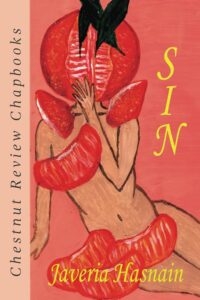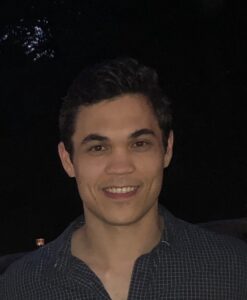What Meditation Did For Me During My MFA
by Nancy Zigler
October 10, 2016
The first day of class, my pedagogy professor told us to close our eyes. She asked that we sit tall, anchor our feet to the ground, straighten our shoulders, and take a deep breath. “Now thank your heart,” she said. “It’s been beating every day since you were born.” I had to strain to hear the last line she uttered; its softness prickled my arms with goosebumps. Until then, I hadn’t known that before you learn to write, you must first learn how to breathe.
Once a week, we’d breathe deeply and meditate a few minutes during class. In these sessions, I was struck by the memory of Texas sunsets; I was homesick and missed skies that made me believe in God. I missed my tía, who had died in Mexico City. There was a knot of loneliness in my stomach, two golden eyes of a boy who had betrayed me. In the version of reality I was living, I hadn’t known that I was hurting. Yet more than once after meditating, I was left raw and in tears from the experience. Leaning into negative emotion by letting it wash over me went against my basic instincts, but I anchored my feet to the ground and summoned the part of me that clinged. I told myself, this is what it feels like to hurt. This is what it feels like to breathe. This is bearable.
It wasn’t the type of learning I had been expecting from an MFA program, but over the next year, meditation became a routine in my class of budding writers and teachers. In these sessions, I learned things about myself that had lain dormant.
For instance, my body told me that it was damn tired. I’d go home after class and fall asleep at two in the afternoon, only to wake up the next day a grain lighter. “When’s the last time I touched silk?” I scribbled in my journal one sun-streaked afternoon, never failing to be surprised at what I’d forgotten.
Each day we carry the weight of our histories on our backs, and as time passes, this weight drags itself in our daily lives, clouding our minds. In the academic setting, the luxury of sitting in silence felt unacceptable. There were papers to write, students to teach, food to be consumed—each moment spent in meditation felt stolen from the little sleep I afforded myself. But sleep and rest, I learned, are not the same.
Before the MFA, I wrote fabulist stories. After my first round of workshop, I was a hop and a skip away from dropping off of a convenient cliff. I folded into myself because I had lost that one glimmer in my life, my private space on the page. Every workshop, tossing my loves into a den of tigers left me riddled with self-doubt. The possibilities of what I couldn’t do were too big and frightening.
In my personal life, the scaffolding that had held me together was crumbling spectacularly. I was lost, falling into the black hole of the realization that I wasn’t the person I once thought I was. Pretty soon, I stopped writing altogether.
But I was still meditating. Each time I opened my eyes after the ting of a bell, the world came back to me in high-definition. I felt more compassionate, kinder, and less angry. There was a day I picked a butternut squash from a vine in my garden and felt genuine remorse for hacking her up with a knife. Maybe I’m out of my fucking mind, I thought, after I pulled her out of the oven, but something had stirred in me, a wall had fallen—I had felt, if only for a flash, interconnectedness.
Most of my peers were publishing like steamrollers, whereas I still couldn’t remember to brush my hair in the morning. My pedagogy professor reminded me that publishing had nothing to do with the quality of the work, that marketing and writing are two different things. When each challenge came my way, she questioned me gently. I was greatly humbled by how wrong I was about, well, most things.
The blind spots in my life didn’t disappear while writing fiction. Instead, they made me create two-dimensional characters I hated who reflected my every misstep. To write well, I had to listen from a more honest place, to face monsters behind curtains I was too afraid to pull back. I’m against the portrait of an artist as an unstable being: to forge imaginary worlds and even unlikable characters, you need strength and a staggering amount of love. Becoming more interested in what was happening in the present moment changed what the present moment meant for me in my stories.
Two years later, I was invited by my professor to give a lecture at Smith College about the importance of quiet to the writing practice. As much as I wanted to go, I still didn’t have a thesis. The time bomb was ticking, and I had spent the last two years learning the pedagogy of being human.
But I went off to Massachusetts anyway. A peer and I sat in a classroom with twenty other strangers and led a session. We meditated. We smiled at each other. I hadn’t written fiction close to my heart—close to the Chicana, the poor suburbanite, the geek in me—well, ever. Taking a deep breath, I picked up a pencil and began to write. You only have to look once at a dog’s eyes to tell how long they’ve lived.
ABOUT THE AUTHOR
Nancy Zigler is a recent MFA graduate from the University of Pittsburgh. She is currently an Education Specialist at NASA’s Johnson Space Center and a past fiction editor of Callaloo and Hot Metal Bridge magazine. She enjoys writing doomed love stories and about her love-hate relationship with Texas. Nancy likes teaching, painting, Pluto, and trekking across desolate cities in search of good pizza. She blogs here.






